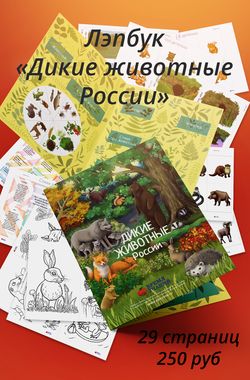Good morning, dear friends. I am very glad to see you. Today we’ll talk about Complex Object. I’m sure you know this construction perfectly well.
So, what is Complex Object? It is a construction which consists of a noun in a common case or a pronoun in an objective case and infinitive.
The first slide . I- me , you-you, he-him, she-her, it –it, we-us, they-them. Let’s consider the examples.
The second slide, We noticed the woman enter the house through the back door. — Мы заметили, как женщина вошла через заднюю дверь.
I saw them walk along the road. — Я видел, как они шли по дороге.
I did not hear her say this because she spoke in a soft voice. — Я не слышал, как она это сказала, потому что она говорила тихо.
As we can see from the examples Complex Object is translated by a subordinate clause with the help of introduced unions. A noun and a pronoun in this complex object corresponds to a subject and infinitive to a predicate of a subordinate clause. Complex Object has the rules we are going to consider. There are some categories of verbs we use in this construction:
1)The first is a category of verbs expresses physical perception and sensation.
The third slide. to see – видеть, to watch – смотреть, to notice – замечать, to observe – наблюдать, to feel – чувствовать, to hear – слышать…
After these verbs we put infinitive without the particle “to”
Slide 4.
I have never heard you sing. – Я никогда не слышал, чтобы ты пел.
We saw the postman slip a thick envelope into the box. – Мы видели, как почтальон опустил в почтовый ящик толстый конверт.
With the verbs of perception in addition to the infinitive it can be used Participle I. If we use Infinitive we tend to underline it’s completeness but if we take Participle I than we demonstrate the process of an action.
Slide 5.
I saw her run into the house. – Я видела, как она забежала в дом.
I saw her running along the road. – Я видела, как она бежала по дороге.
Besides, if the verbs “see” and “hear” are taken in the meaning as “understand” and “know” we don’t use Complex Object instead of it we use subordinate clause.
Slide 6. I see that you are in low spirits. – Я вижу, что у тебя нет настроения.
2. The second is a category of verbs expresses motivation, force.
Slide 7. (to let – позволять, to make – заставлять, to have – распорядиться).
We take infinitive without the particle “to”
Slide 8. you can’t make me do such things. – Ты не можешь заставить меня сделать это.
Never let him go. – Никогда не отпускай его.
They made the man do what they wanted. – Они заставили этого человека сделать то, что они хотели.
3.The third category of verbs expresses wish and need.
Slide 9. (to want – хотеть, to wish / to desire – желать, to like – нравиться, should / would like – хотел бы).
Slide 10. He wanted his students to note the colours of animals. – Он хотел, чтобы его студенты отметили окрас животных.
The inspector would like you to explain everything to him. – Инспектор хотел бы, чтобы вы все ему объяснили.
4.The next category expresses assumption
Slide 11. (to expect – ожидать, рассчитывать; to suppose – полагать, to believe – считать, полагать; to consider / to find – считать).
Slide 12. Parents usually expect their children to be obedient. – Родители обычно рассчитывают, что их дети будут послушными.
We believe it to be the best way out of this situation. – Мы полагаем, что это будет лучший выход в данной ситуации.
5.The fifth category includes verbs expressing knowledge, awareness,statement.
Slide 13. (to know – знать, to think – думать, to state – констатировать, to note – отмечать, to report – сообщать и другие).
Slide 14. People knew him to be a great sculptor. – Люди знали, что он великий скульптор.
She thought him to be a qualified specialist. – Она думала, что он квалифицированный специалист.
6.And the last category consists of verbs expressing coercion, order, permission or request.
Slide 15. (to order – приказывать, to allow – разрешать, to forbid – запрещать и другие).
Slide 16. He ordered him to stop this conversation. – Он приказал ему прекратить этот разговор
As we can see in the last four items , in all the cases infinitive is used with the particle “to”. Basically, it’s a full information concerning Complex Object, but there is one more nuance, it is when we use Complex Object with Participle II . In such construction it is denoted that the action is not done by you but somebody else, It looks like that
Slide 17. to have one’s hair cut (подстричься), to have one’s eyes tested (проверить зрение), to have one’s watch repaired (отдать часы в ремонт)



